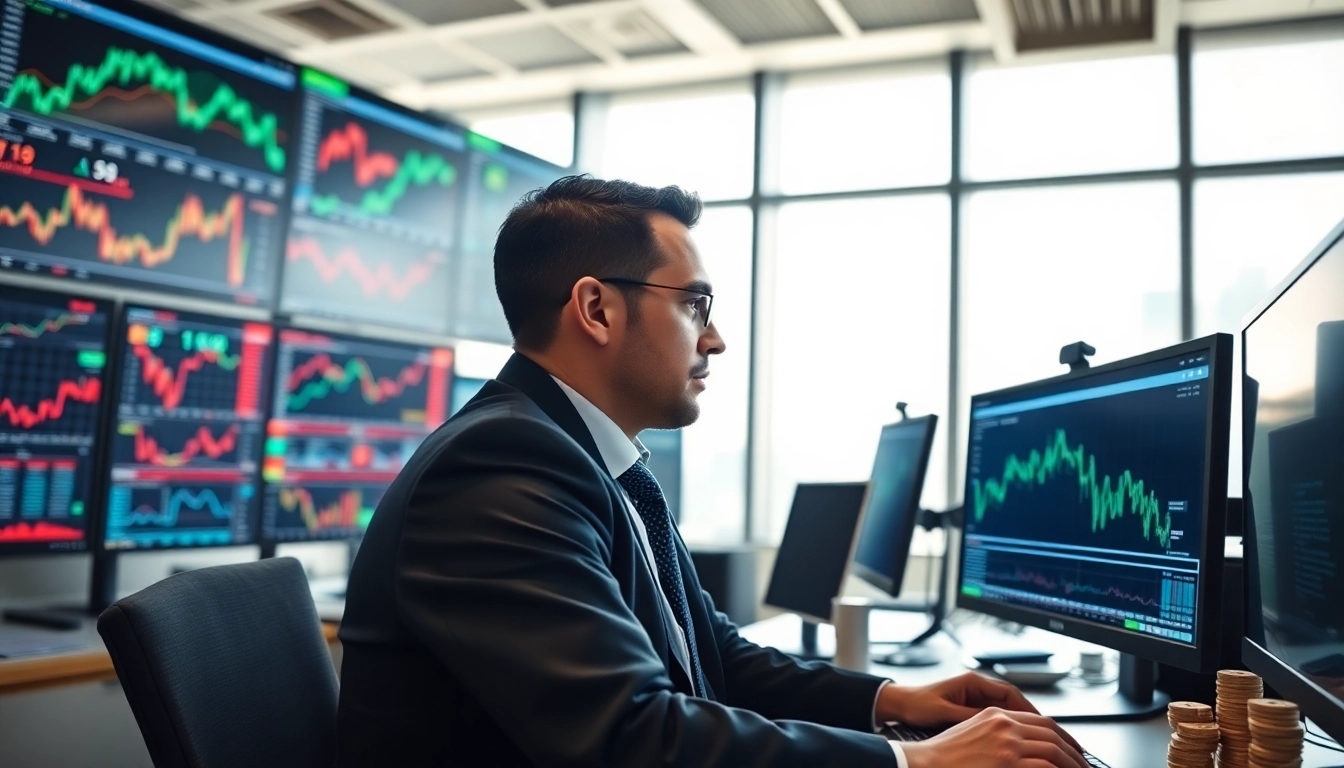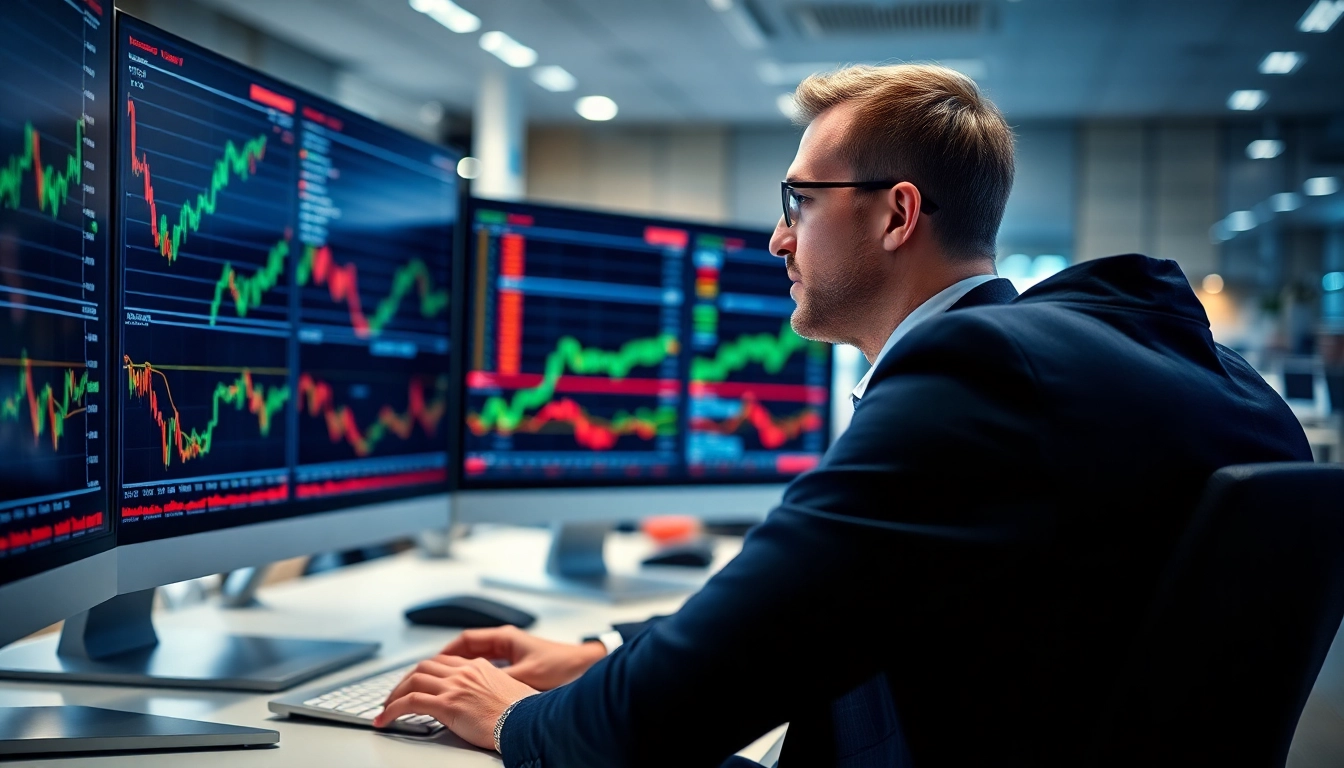Introduction to Elite Trading
In today’s fast-paced financial markets, traders are constantly seeking ways to refine their strategies, enhance their skills, and achieve remarkable success. One concept that has gained traction is elite trading, encompassing the knowledge, tools, and strategies necessary to excel in trading various assets. This article delves into elite trading, providing a comprehensive overview, practical strategies, and insights that can empower traders at all levels to reach their potential.
Understanding Elite Trading
Elite trading is not merely about making profitable trades; it encompasses a holistic understanding of financial markets, mastering technical and fundamental analysis, and developing psychological resilience. It involves a commitment to continuous education and adapting to changing market conditions. Elite traders often leverage advanced trading methodologies and maintain a disciplined approach to avoid common pitfalls.
Importance of Education in Elite Trading
Education plays a pivotal role in elite trading. It’s essential for traders to familiarize themselves with various trading instruments, market analysis techniques, and trading platforms. Engaging in educational programs, such as webinars, online courses, and trading mentorship, can provide traders with the necessary skills to navigate complex market dynamics. Continuous learning helps traders to stay informed about new trends and innovations, allowing them to adapt their strategies according to the evolving landscape.
Government Regulations Affecting Elite Trading
Understanding government regulations is crucial for elite traders. Regulatory bodies oversee financial markets to ensure fairness, transparency, and investor protection. Traders must familiarize themselves with the guidelines set by these agencies, which can vary by country. Compliance with regulations, such as reporting requirements and trading practices, can significantly affect trading outcomes. Being knowledgeable about regulations can help traders avoid legal issues and enhance their overall trading experience.
Essential Tools for Effective Elite Trading
Software and Technology for Elite Trading
The right software and technology can dramatically enhance a trader’s performance. Trading platforms should provide comprehensive tools for charting, technical analysis, and risk management. High-frequency trading systems, algorithmic trading software, and trading bots represent significant advancements in technology that elite traders utilize to execute trades efficiently. Having access to real-time data feeds is also critical, as it enables traders to make informed decisions swiftly.
Choosing a Broker for Elite Trading
Selecting the right broker is one of the most vital decisions a trader can make. An ideal broker should offer competitive spreads, low commissions, and reliable customer service. Additionally, traders should consider the broker’s reputation, regulatory compliance, and trading platform features. A broker that provides a demo account can be particularly beneficial, allowing traders to test their strategies and familiarize themselves with the platform without financial risk.
Risk Management Techniques in Elite Trading
Effective risk management is a hallmark of elite trading. Traders need to establish clear risk-reward ratios for their trades and set stop-loss orders to protect their capital. Diversification across various asset classes can help mitigate risks and smooth out returns. Utilizing position sizing techniques, like the Kelly Criterion, enables traders to adjust their bets based on their confidence levels in a trade. Understanding and applying risk management strategies can prevent significant losses and enhance long-term trading success.
Strategies to Enhance Your Elite Trading Skills
Technical Analysis Basics for Elite Trading
Technical analysis is a cornerstone of elite trading. It involves analyzing historical price data to forecast future price movements. Traders utilize chart patterns, trend lines, support and resistance levels, and technical indicators, such as moving averages and oscillators, to make informed decisions. Engaging in simulation trading can help traders practice and sharpen their technical analysis skills without risking real capital, providing valuable insights into market movements.
Fundamental Analysis in Elite Trading
While technical analysis focuses on price movements, fundamental analysis involves evaluating economic, financial, and other qualitative and quantitative factors that can affect an asset’s value. Elite traders who employ fundamental analysis often analyze factors such as earnings reports, economic data releases, and geopolitical events. Understanding these elements can help traders make educated predictions on market trends and asset performance, leading to profitable trading decisions.
Developing a Personal Trading Plan
Creating a well-defined trading plan is essential for every elite trader. This plan should encompass specific goals, defined trading strategies, risk tolerance, and performance metrics. Traders should regularly review and adjust their plans based on their experiences and market changes. A disciplined approach to following one’s trading plan can foster consistency and help traders avoid impulsive decisions driven by emotions.
Performance Metrics in Elite Trading
Evaluating Trading Performance
To achieve consistency in elite trading, performance evaluation is critical. Traders should track their trading performance through key metrics like win/loss ratio, average return per trade, and overall portfolio performance. Analyzing these metrics allows traders to identify strengths and weaknesses in their trading strategies. Regularly assessing performance facilitates continuous improvement and helps traders refine their approaches for better results.
Tracking Key Performance Indicators for Elite Trading
Key Performance Indicators (KPIs) serve as benchmarks for traders to measure their progress. These indicators may include trade frequency, profit factor, drawdown metrics, and risk-adjusted return measures like the Sharpe Ratio. By regularly tracking these KPIs, traders can gain insights into their trading behavior and make data-driven decisions aimed at enhancing performance. Incorporating technology, such as trading journals or performance analysis software, can streamline this tracking process and provide deeper insights.
Continuous Learning and Adaptation in Elite Trading
The financial markets are constantly changing, necessitating that elite traders embrace a mindset of continuous learning and adaptation. Engaging in industry discussions, following market news, attending seminars, and participating in trading communities can expose traders to new ideas and strategies. Developing a culture of feedback and self-analysis enables traders to adapt proactively to market trends and challenges, ensuring they remain competitive.
Future Trends in Elite Trading
The Role of AI and Automation in Elite Trading
Artificial Intelligence (AI) and automation are poised to revolutionize elite trading practices. Advanced algorithmic trading systems, powered by AI, can analyze vast datasets, identify trading patterns, and execute orders at speeds unachievable by humans. As these technologies evolve, elite traders may harness AI to enhance their decision-making and trade execution accuracy. Traders who embrace these advancements can gain a distinct edge in competitive market environments.
Impact of Global Economic Changes on Elite Trading
Global economic changes, such as shifts in monetary policy, trade agreements, and geopolitical tensions, can have profound effects on financial markets. Elite traders must stay updated on macroeconomic indicators and global events that may influence their trading decisions. Developing a global perspective and understanding how different markets interrelate can enable traders to capitalize on arbitrage opportunities and hedge against adverse movements.
Sustainable Trading Practices for Elite Trading
As awareness of environmental and social issues grows, sustainable trading practices are gaining importance. Elite traders are increasingly considering factors such as corporate social responsibility and ethical investing in their strategies. This focus can influence their asset selection and long-term strategies, aligning financial success with a commitment to sustainability. Incorporating ESG (Environmental, Social, and Governance) criteria into trading decisions promotes not just profitability but also responsibility toward society and the planet.



